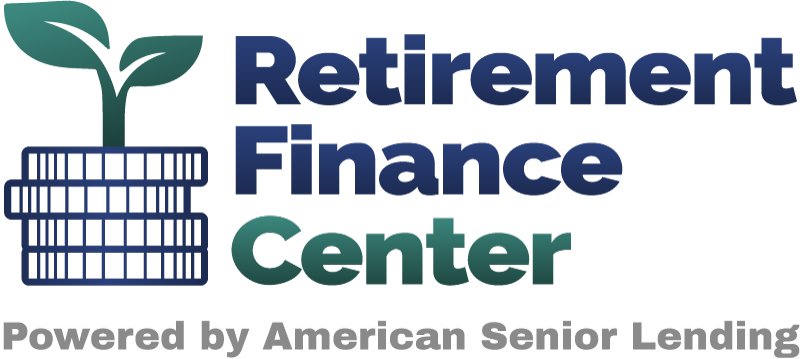Who Owns Your Home In a Reverse Mortgage?
Let’s Now Discuss
When considering a reverse mortgage, one of the most common questions homeowners have is, “Who owns the house in a reverse mortgage?”
This question is crucial as it touches on the ownership rights, responsibilities, and potential future scenarios of the property involved. In this blog post, we’ll break down how reverse mortgages work, who retains ownership of the home, and what homeowners and heirs need to know about this financial product.
Understanding Reverse Mortgages?
 A reverse mortgage is a type of loan available to homeowners who are 62 years or older, allowing them to convert part of the equity in their homes into cash. Unlike a traditional mortgage, where the homeowner makes monthly payments to the lender, a reverse mortgage pays the homeowner. The loan is typically repaid when the homeowner sells the house, moves out permanently, or passes away.
A reverse mortgage is a type of loan available to homeowners who are 62 years or older, allowing them to convert part of the equity in their homes into cash. Unlike a traditional mortgage, where the homeowner makes monthly payments to the lender, a reverse mortgage pays the homeowner. The loan is typically repaid when the homeowner sells the house, moves out permanently, or passes away.
The most common reverse mortgage is the Home Equity Conversion Mortgage (HECM), which is insured by the Federal Housing Administration (FHA). The FHA provides specific protections and regulations for homeowners considering a reverse mortgage, making it a relatively safe option for seniors looking to access their home equity.
Who Owns The House?
Despite common misconceptions, the homeowner retains ownership of the house in a reverse mortgage. The lender does not own the property; instead, the reverse mortgage is simply a lien against the home. This means that the homeowner remains the owner of the property, just as they would with a traditional mortgage. Here’s what this entails:
1. Title and Ownership Rights: The homeowner’s name remains on the title, and they retain all ownership rights to the property. The lender’s interest is limited to the loan amount plus interest and fees, which will need to be repaid at the time the loan comes due.
2. Homeowner Responsibilities: Even though the homeowner is not making monthly mortgage payments, they still have important responsibilities. These include maintaining the home, paying property taxes, and keeping homeowner’s insurance up to date. Failure to meet these obligations could lead to the loan becoming due and payable, potentially resulting in foreclosure.
3. Loan Repayment: The loan is generally repaid when the homeowner sells the house, moves out permanently (for example, into a long-term care facility), or passes away. At that point, the proceeds from the sale of the home are used to pay off the reverse mortgage. Any remaining equity belongs to the homeowner or their heirs.
What Happens When the Loan Becomes Due?
 A key aspect of understanding who owns the house in a reverse mortgage is knowing what happens when the loan becomes due. The loan typically becomes due in the following scenarios:
A key aspect of understanding who owns the house in a reverse mortgage is knowing what happens when the loan becomes due. The loan typically becomes due in the following scenarios:
– The Homeowner Passes Away: Upon the death of the last surviving borrower, the loan becomes due. The heirs can choose to repay the loan and keep the home, sell the home to repay the loan, or, if the home is worth less than the loan balance, hand over the deed to the lender in a process known as “deed in lieu of foreclosure.” The heirs are never required to pay more than the home’s appraised value due to the non-recourse nature of the HECM loan, meaning they are protected from owing more than the home is worth .
– The Homeowner Sells the House: If the homeowner decides to sell the house, the loan becomes due at that point. The proceeds from the sale are used to pay off the reverse mortgage. If the sale price exceeds the loan balance, the homeowner keeps the remaining equity.
– The Homeowner Moves Out Permanently: If the homeowner moves out of the home for more than 12 consecutive months (such as moving into an assisted living facility), the loan becomes due. At that point, the homeowner or their heirs must either repay the loan or sell the home.
Important Considerations For Heirs?
Heirs often have questions about what happens to the home when a reverse mortgage is involved. Here’s what heirs need to know:
1. Repayment Options: When the homeowner passes away, heirs typically have 30 days to decide what to do with the property, though they can request up to two 90-day extensions to settle the estate or arrange financing . They can choose to pay off the loan and keep the home, sell the home and use the proceeds to repay the loan, or let the lender take possession of the home if the loan balance exceeds the home’s value.
2. Equity Inheritance: If there is remaining equity after the reverse mortgage is paid off, it belongs to the heirs. Conversely, if the loan balance exceeds the home’s value, the heirs are not responsible for the difference due to the loan’s non-recourse nature .
3. Tax Implications: In most cases, the sale of a home inherited with a reverse mortgage does not incur income tax on the proceeds, as the IRS considers the money from the sale of the home a return of capital rather than taxable income.
Protecting Your Investment: FHA and HUD Safeguards

The Federal Housing Administration (FHA) and the Department of Housing and Urban Development (HUD) offer several safeguards to protect homeowners and their heirs involved in a reverse mortgage. These include mandatory counseling sessions with a HUD-approved counselor to ensure that homeowners fully understand the terms and implications of a reverse mortgage .
Additionally, HECM loans are non-recourse, meaning that the borrower or their heirs will never owe more than the home’s value, even if the loan balance exceeds it. This is a significant protection for homeowners and their families.
You Own Your Own Home
When asking, “Who owns the house in a reverse mortgage?” the answer is clear: the homeowner retains ownership of the home. The reverse mortgage is simply a lien against the property that must be repaid when the homeowner no longer occupies the home. Understanding this fundamental aspect of reverse mortgages can help homeowners and their heirs make informed decisions and feel confident in their financial planning.
For more information, consult the official resources provided by the Department of Housing and Urban Development (HUD) and the Federal Housing Administration (FHA), which offer detailed guidance and protections for those considering a reverse mortgage
If you have more questions or need a customized quote package, don’t hesitate to reach out to a local reverse mortgage lender near you.
